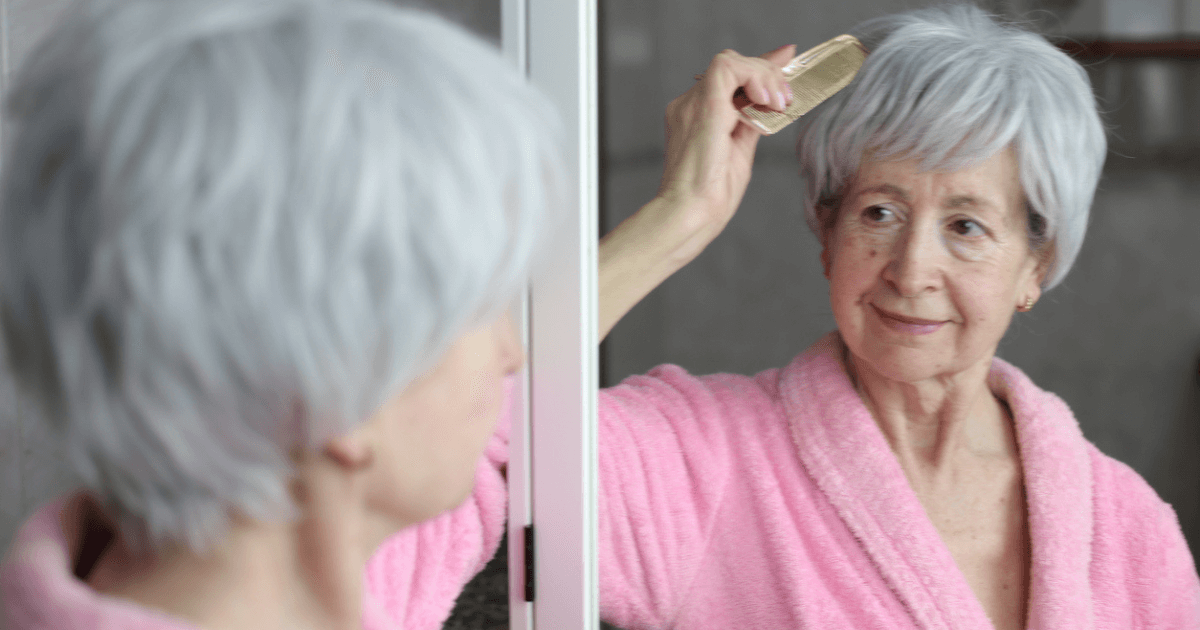Growing older can hold many blessings for individuals and their families. But time can also bring challenges and it’s never easy to see those you love struggling with daily life.
Your parents’ love and legacy have likely played an integral role in your family. It can be difficult to talk about a shift in their ability to navigate basic tasks, such as dressing, grooming or managing household chores, but it may be time to speak up.
There are options that can help maintain self-reliance and an independent spirit. By seeing the world through their parent’s eyes and with compassion, understanding and confidence, adult children can ensure the helping hand that’s needed is received.
Seniors and personal care: Keys to creating a high-quality life
If you could use help in supporting your parents to continue to feel the love, warmth and respect they deserve, the following tips can guide your efforts:
1. Understanding the needs of aging parents
The first step is to recognize the signs and underlying reasons so the right support can be delivered.
- Physical limitations: Aging can bring about challenges that make daily tasks more difficult, including reduced mobility, chronic pain and diminished strength.
- Cognitive decline: Conditions like dementia or Alzheimer’s disease can impair an individual’s memory or ability to perform routine tasks, including personal care.
- Emotional factors: Depression, loneliness and a sense of loss can significantly impact people’s ability to care for themselves.
- Safety concerns: The fear of slipping in the shower or falling while doing laundry can lead to avoidance of these activities altogether.
2. What to watch for
Families may begin noticing the following signs that help may be needed:
- Difficulty maintaining personal hygiene: This includes irregular bathing, unkempt hair and a noticeable decline in oral care.
- Struggles with dressing: Wearing the same clothes for extended periods, having difficulty with laundry or wearing clothes unsuitable for the weather or occasion could be signs that help is needed.
- Housekeeping challenges: A noticeable decline in the cleanliness and orderliness of their house or other maintenance issues may be apparent.
- Nutritional neglect: Skipping meals, reliance on processed foods, a lack of fresh food in the house or cabinets filled with snacks are clues that it is becoming more challenging to prepare healthy meals.
Download your copy of the
Early Signs of Dementia Guide.
3. Solutions and support
If your loved one is struggling, several options can be considered, including the following:
- Increased involvement of family members: Regular visits and assistance with daily tasks can provide relief. However, if a son or daughter isn’t available or is balancing care for their own families, this option may not work.
- Hiring a home care worker: Professional caregivers can offer personalized support for hygiene, meals and light housekeeping. However, if the parent’s needs require extensive hours of help, this can be a budget issue. Families often can’t afford 24/7 or nighttime assistance.
- Assisted living communities: Offering a comprehensive solution, your loved one will not only receive personal care support but also live in a safe environment with healthy dining and engagement opportunities.
The advantages of an assisted living community
Beyond addressing the immediate concerns of grooming and dressing, as well as providing an accessible and private residence, assisted living communities offer these additional benefits:
- Personalized care plans: Tailored to meet each resident’s unique needs, these plans ensure the right level of support is provided while promoting independence.
- Social engagement: A range of social activities promotes mental health and combats loneliness – from group exercises to cultural outings and communal dining.
- Health and wellness programs: Access to fitness classes, wellness programs and on-site physical health and mobility support are beneficial.
- Safety and security: Features like emergency call systems, 24-hour security and compassionate staff ensure that residents are safe and well-cared for at all times.
- Healthy dining: Meals are delicious and focused on nutritional needs and dietary preferences, ensuring residents receive balanced, healthy meals daily.
- Housekeeping and laundry services: The maintenance-free lifestyle allows residents to focus on enjoying their friendships and interests.
Determining the best course of action
Choosing the best support for seniors and personal care is a significant decision that requires careful consideration of needs, preferences and available options. Open conversations about concerns, likes and dislikes are essential. While the transition may seem daunting, the right support can vastly improve quality of life.
Depending on the level of services needed and lifestyle choices preferred, family involvement, home care services or moving to an assisted living community are some of the paths available for seniors and personal care.
However, many families choose assisted living because of its comprehensive solution that not only addresses personal care needs but also promotes a vibrant, engaging lifestyle that can enrich a parent’s quality of life and joy for the future.
The Charleston Senior Living Community
Locally owned and operated, we offer personalized care by our dedicated team members. Setting a new standard in Assisted Living and Memory Care, we don’t define our residents by their limitations or illness but instead believe in focusing on the positive and the possibility.
The Charleston Senior Community includes private apartments for assisted living residents and for those living with Alzheimer’s or dementia. Your loved ones will benefit from our attention to detail, routine health assessments, delicious dining and daily activity programs as we support everyone to live their best life.
Consider a few of our amenities:
- Chef-led dining program
- Community movie theater
- Salon
- Ballroom
- Live entertainment
- Outdoor patio
- Social lounges
- Housekeeping
If you or your family is thinking about Assisted living or Memory care, we hope you will consider The Charleston Senior Community. We are a trusted resource and are here to answer any questions, contact us today.
We also invite you to download your copy of the Early Signs of Dementia Guide.








